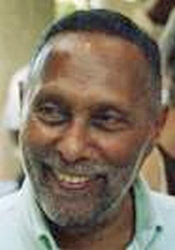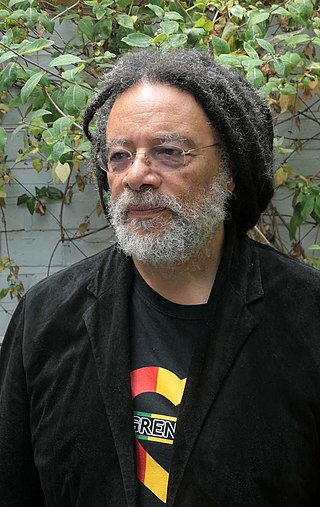
A proverb is a simple, traditional saying that expresses a perceived truth based on common sense or experience. Proverbs are often metaphorical and use formulaic language. A proverbial phrase or a proverbial expression is a type of a conventional saying similar to proverbs and transmitted by oral tradition. The difference is that a proverb is a fixed expression, while a proverbial phrase permits alterations to fit the grammar of the context. Collectively, they form a genre of folklore.

Cultural diversity is the quality of diverse or different cultures, as opposed to monoculture. It has a variety of meanings in different contexts, sometimes applying to cultural artefacts like music recordings or art works in museums, and sometimes applying to the variety of human cultures or traditions in a specific region, or in the world as a whole. It can also refer to the inclusion of different cultural perspectives in an organization or society.
Cross-cultural communication is a field of study investigating how people from differing cultural backgrounds communicate, in similar and different ways among themselves, and how they endeavor to communicate across cultures. Intercultural communication is a related field of study.
Acculturation is a process of social, psychological, and cultural change that stems from the balancing of two cultures while adapting to the prevailing culture of the society. Acculturation is a process in which an individual adopts, acquires and adjusts to a new cultural environment as a result of being placed into a new culture, or when another culture is brought to someone. Individuals of a differing culture try to incorporate themselves into the new more prevalent culture by participating in aspects of the more prevalent culture, such as their traditions, but still hold onto their original cultural values and traditions. The effects of acculturation can be seen at multiple levels in both the devotee of the prevailing culture and those who are assimilating into the culture.
In mathematics education, ethnomathematics is the study of the relationship between mathematics and culture. Often associated with "cultures without written expression", it may also be defined as "the mathematics which is practised among identifiable cultural groups". It refers to a broad cluster of ideas ranging from distinct numerical and mathematical systems to multicultural mathematics education. The goal of ethnomathematics is to contribute both to the understanding of culture and the understanding of mathematics, and mainly to lead to an appreciation of the connections between the two.

Black studies, or Africana studies, is an interdisciplinary academic field that primarily focuses on the study of the history, culture, and politics of the peoples of the African diaspora and Africa. The field includes scholars of African-American, Afro-Canadian, Afro-Caribbean, Afro-Latino, Afro-European, Afro-Asian, African Australian, and African literature, history, politics, and religion as well as those from disciplines, such as sociology, anthropology, cultural studies, psychology, education, and many other disciplines within the humanities and social sciences. The field also uses various types of research methods.

Stuart Henry McPhail Hall was a Jamaican-born British Marxist sociologist, cultural theorist, and political activist. Hall, along with Richard Hoggart and Raymond Williams, was one of the founding figures of the school of thought that is now known as British Cultural Studies or the Birmingham School of Cultural Studies.

The Culture of Africa is varied and manifold, consisting of a mixture of countries with various tribes depicting their unique characteristic and trait from the continent of Africa. It is a product of the diverse populations that inhabit the continent of Africa and the African diaspora. Generally, Culture can be defined as a collective mass of distinctive qualities belonging to a certain group of people. These qualities include laws, morals, beliefs, knowledge, art, customs, and any other attributes belonging to a member of that society. Culture is the way of life of a group of people.

Paul Gilroy is an English sociologist and cultural studies scholar who is the founding Director of the Sarah Parker Remond Centre for the Study of Race and Racism at University College, London (UCL). Gilroy is the 2019 winner of the €660,000 Holberg Prize, for "his outstanding contributions to a number of academic fields, including cultural studies, critical race studies, sociology, history, anthropology and African-American studies".

In anthropology, high-context culture and low-context culture are ends of a continuum of how explicit the messages exchanged in a culture are and how important the context is in communication. The continuum pictures how people communicate with others through their range of communication abilities: utilizing gestures, relations, body language, verbal messages, or non-verbal messages. "High-" and "low-" context cultures typically refer to language groups, nationalities, or regional communities. However, the concept may also apply to corporations, professions, and other cultural groups, as well as to settings such as online and offline communication. High-context cultures often exhibit less-direct verbal and nonverbal communication, utilizing small communication gestures and reading more meaning into these less-direct messages. Low-context cultures do the opposite; direct verbal communication is needed to properly understand a message being communicated and relies heavily on explicit verbal skills. The model of high-context and low-context cultures offers a popular framework in intercultural-communication studies but has been criticized as lacking empirical validation.

African American Review (AAR) is a scholarly aggregation of essays on African-American literature, theatre, film, the visual arts, and culture; interviews; poetry; fiction; and book reviews.

Swahili culture is the culture of the Swahili people inhabiting the Swahili coast. This littoral area encompasses Tanzania, Kenya, and Mozambique, as well as the adjacent islands of Zanzibar and Comoros along with some parts of Malawi and the eastern part of Democratic Republic of Congo. They speak Swahili as their native language, which belongs to the Bantu language family. Graham Connah described Swahili culture as at least partially urban, mercantile,and literate.
Postcolonialism is the critical academic study of the cultural, political and economic legacy of colonialism and imperialism, focusing on the impact of human control and exploitation of colonized people and their lands. The field started to emerge in the 1960s, as scholars from previously colonized countries began publishing on the lingering effects of colonialism, developing a critical theory analysis of the history, culture, literature, and discourse of imperial power.
The following outline is provided as an overview of and topical guide to culture:
Yeda Pessoa de Castro is a Brazilian ethnolinguist. With a PhD in African Languages at the National University of Zaire, she is a Technical Consultant in African Languages for the Museu da Língua Portuguesa at the Estação da Luz in São Paulo, a Member of the Academia de Letras da Bahia and of the ANPOLL's GT de Literatura Oral e Popular. Also is a Permanent Member of the Brazilian Scientific Committee of the Project "Slave Route" by UNESCO.
Italian Studies is an interdisciplinary field dealing with the study of the Italian language, literature, art, history, politics, culture and society.
Cultural studies, also called the cultural sciences, is an interdisciplinary field or scientific branch that examines the dynamics of contemporary culture and its historical foundations. Cultural studies researchers generally investigate how cultural practices relate to wider systems of power associated with, or operating through, social phenomena. These include ideology, class structures, national formations, ethnicity, sexual orientation, gender, and generation. Employing cultural analysis, cultural studies views cultures not as fixed, bounded, stable, and discrete entities, but rather as constantly interacting and changing sets of practices and processes. The field of cultural studies encompasses a range of theoretical and methodological perspectives and practices. Although distinct from the discipline of cultural anthropology and the interdisciplinary field of ethnic studies, cultural studies draws upon and has contributed to each of these fields.

Moha Ennaji ; is a Moroccan linguist, author, political critic, and civil society activist. He is a university professor in the Department of English Language and Literature at Sidi Mohamed Ben Abdellah University at Fes, where he has worked for over 30 years. In addition to his publications in linguistics, he has written on language, education, migration, politics, and gender, and is the author or editor of over 20 books.

The Ministry of Religious Affairs and Culture administers the religious affairs, cultural affairs and historical and archaeology research efforts of Myanmar. The Department of Religious Affairs purification, perpetuation, promotion and propagation of the Theravada Buddhist Sasana and promotes Myanmar traditional customs and culture.
Brian T. Edwards is dean of the School of Liberal Arts and professor of English at Tulane University in New Orleans, Louisiana. Prior to moving to Tulane in 2018, he was on the faculty of Northwestern University, where he was the Crown Professor in Middle East Studies, professor of English and Comparative Literary Studies, and the founding director of the Program in Middle East and North African Studies (MENA).











